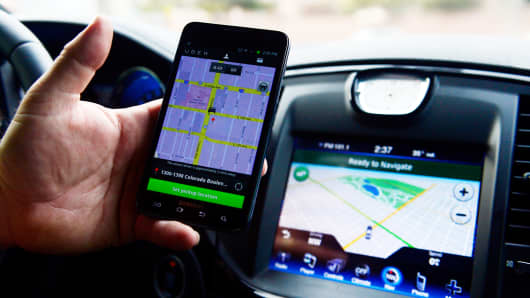A weekly recap of news on the CNBC Disruptor 50 companies upending the status quo in the markets.
Uber Targets the One Percent …
Uber expanded its business to the Hamptons for the Fourth of July weekend, and in true Hamptons style, Uber users will be hailing a helicopter. The company is offering a limited-time chopper service to and from the exclusive Long Island communities priced at $3,000 for up to five people. Uber users can hail a black car from anywhere in New York to be taken to the nearest heliport and flown to the East Hampton airport.
… While Also Making a Play for the Masses
With 400,000 San Francisco commuters struggling to get to work this week as a result of a Bay Area Rapid Transit workers strike, rideshare companies such as Uber saw an opportunity.
Uber and Sidecar ran promoted Tweets ensuring that tens of thousands of people who searched Twitter for "BART strike" would see an ad about the services.
Uber contacted all its Bay Area drivers and asked them to expect increased demand, and Monday's commute didn't disappoint, Uber General Manager Ilya Abyzov said.
(Read More: It's Too Late, Malware Has Already Won)
Bulletproof Software
One of the most difficult PR issues for companies in the 3-D printing market, including CNBC Disruptors' Shapeways and Makerbot, are concerns about the evil uses to which 3-D printers can be put, including making firearms. The world's first gun made using 3-D printing was fired on May 6 in Austin, Texas, and the blueprint to produce the plastic gun has been downloaded about 100,000 times, according to Forbes.
Now, Danish start-up Create It REAL has produced software that it says blocks users from printing guns in the first place.
"The likely buyers are 3-D printer manufacturers who want to minimize their liability risk and offer a firearm parental control feature to their customers," Create It REAL CEO Jeremie Pierre Gay told CNBC. The software has taken a year to develop. The firm realized there was a gap in the market after surveying end users and 3-D printer manufacturers.





